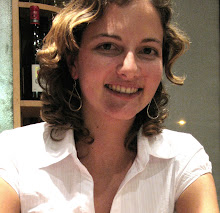A week in Bamako crawled by. I was waiting for a train to Dakar, the famous Bamako-Dakar "express," though it took me three days to even learn when it left: Wednesday. But when I went to buy my ticket on Tuesday, I learned that the train would not be leaving that week, nor could anyone guarantee the following week -- there was a fete of marabouts in Dakar, and the train had not come back to Bamako the week before. However, there was a train leaving that night that went as far as Kayes. I pretended that all made some sense, and bought the ticket.
The train to Dakar is legendary throughout the region, largely because it is so unreliable and uncomfortable. Everyone in Bamako also pointed out that it had been de-railing a lot lately, although the details changed all the time. Were passenger trains or freight trains de-railing? How many people had died? Was the company owned by Germans, Canadians or Americans? No one knew. No one was talking about it.
I arrived at the station promptly at 7:30pm. "No, of course the train won't leave on time," a conductor snapped impatiently at me. "No one knows when it will leave, it doesn't have a schedule. Ici c'est pas comme en France!" Annoyed, I told him I wasn't French, but later I heard him use the same line with everyone who complained about anything.
We pulled out of Bamako at 8:30 -- an hour late. Everyone on board was astonished at the train's punctuality. They told me it usually doesn't leave until 10:00 or 11:00. I settled into my spacious vinyl chair with its cracked and pitted armrests, and marveled at the fact that despite my good fortune in sitting next to an open window, no breeze came through the carriage at all. The old man sitting across the aisle was wearing a turquoise boubou and gnawing on a mango, swallowing the skin. He fanned himself with a woven straw fan and stared at me fiercely. Everywhere I looked, fans fluttered like moths. We sat like that for the next 18 hours.
The woman next to me was a rich girl whose family owned two houses. Her hair was finely braided and tied back, and her pedicure made her toenails look like enamel claws. Every time the train stopped, she hung out the window and did some shopping. Standing barefoot on the seat, she bought bunches of mint, toothbrush sticks and bags and bags of mangoes. "Chez nous, des enfants sont beaucoups," she explained. Everyone else was buying mangoes as well, and in massive quantities. Mangoes piled up in sacks and buckets in the aisle, and soon the motionless air in the carriage hung heavy with the sweet-and-sour scent of rotting fruit.
Desperate to escape the smell and the heat, I sought out my favorite seat on every African train: the steps by the open door that says "Do not open while train is in motion." At this point I always feel acutely grateful for the continent's general lack of concern for health and safety. My feet planted on the bottom step and one hand braced against a handrail, I sat and watched as rivers, villages and desert scrub brush sped by, hoping the next jolt wouldn't send me hurtling into the dry grass. Behind me a ferocious-looking conductor in a grey suit was muttering to himself as he meticulously recorded each stop the train made, and the time it spent there. I couldn't imagine why. He had a forked beard and woolly hair in which was lodged a blue pen, and after he had tucked his notebook into his pocket he railed at everyone within earshot about how late the train was and how nobody respected schedules. No one seemed to be listening.
Some of the villages we stopped in looked too small to have a road, let alone a railway station. Women came running out of the huts to mill about under the windows selling mangoes, brochettes and bottled water. Pulling away from one stop I leaned out to take a picture, and my lens cap fell off and rolled into the dust. "Don't worry, we can get it back for you," one of the conductors assured me. "There's a train behind us. We'll telephone to tell them to look for your lens cap when they stop in that village, and then we'll bring it to you in Kayes."
It was a far-fetched proposition, but it occurred to me that here in West Africa, this was one transaction that might actually work. After all, ici c'est pas comme en France . . .
It hasn't happened yet, but if a Peace Corps volunteer in Kayes were to email me here in Dakar to say that my lens cap is on its way back home, I wouldn't be entirely surprised.
Sunday, April 30, 2006
Subscribe to:
Post Comments (Atom)

No comments:
Post a Comment